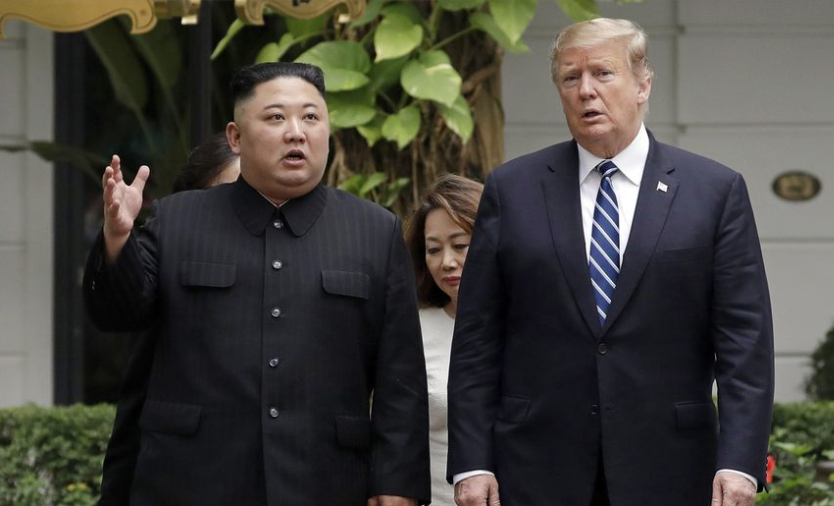
President Trump and Kim Jong-un’s failure to reach an agreement in their second summit was “really bad news” for the North Korean leader, according to a former top State Department official who had a instrumental role in opening the current nuclear diplomacy with Pyongyang.
Mr. Trump’s decision at the Hanoi summit to reassert the U.S. position that “we cannot move on sanctions until there is much more progress on denuclearization” has altered the “power dynamics” going forward, says Ambassador Joseph Yun, who was U.S. special envoy on North Korea from 2016 to 2018.
“This is really bad news for Kim Jong-un,” Mr. Yun told reporters in a round-table discussion Friday at the U.S. Institute of Peace, where he’s an adviser. “The North Korean leader is not associated with failures. There is no failure in their vocabulary for the leader. So, very bad news for Kim Jong-un. It’s almost like he’s in time out, you know?”
“He’s stuck, doesn’t have any sanctions relief,” Mr. Yun said. “He doesn’t know where this is going. So, I think this really does change the power dynamics of negotiations.”
The comments came as North Korean state media, which refers to the nation by the acronym DPRK — Democratic People’s Republic of Korea — admitted for the first time Friday that the Feb. 28-29 summit in Hanoi had ended without an agreement.
After more than a week of general silence on the matter, Rodong Sinmun, the official newspaper of Mr. Kim’s ruling Workers’ Party, published a commentary Friday asserting that Washington was to blame for the fruitless meeting.
“The public at home and abroad that had hoped for success and good results from the second DPRK-U.S. summit in Hanoi are feeling regretful, blaming the U.S. for the summit that ended without an agreement,” said the commentary, according to several reports.
Reuters noted that Rodong went on to use fiery rhetoric toward Japan, accusing Tokyo of being “desperate to interrupt” relations between Pyongyang and Washington and of “applauding” the breakdown of the summit.











